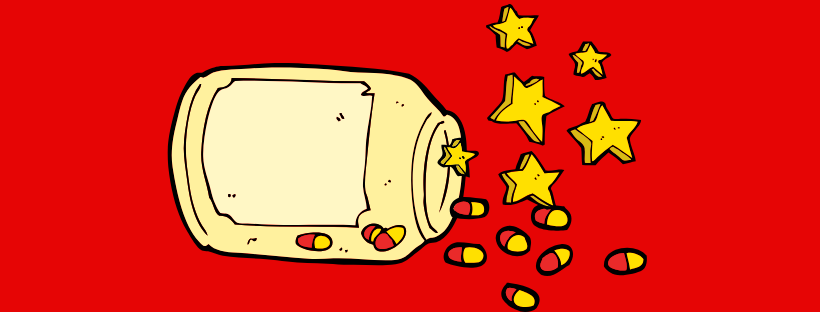by Gabriel Levitt, President, PharmacyChecker.com and Prescription Justice | Dec 5, 2019 | Drug Importation
A new Chinese law (in effect as of December 1, 2019) makes third-party
online platform medicine sales legal, appropriately ends a draconian definition
of counterfeit drugs, and effectively decriminalizes personal drug importation,
but with a lot of gray! The changes were part of a major overhaul of the Drug Administrative Law
of the People’s Republic of China (DAL). The previous linked to page is in
Chinese but you can use Google translate to read it in English or another
language. A summary in English can be found here:
Summary
of Revised Chinese Drug Administration Law
For supporters of online access to safe and affordable
imported medicines, this is kind of cool.
(more…)Tagged with: China, Gleevec, lu yong
by Gabriel Levitt, President, PharmacyChecker.com and Prescription Justice | Mar 5, 2015 | Drug Importation, Drug Prices, Generic drugs
At the beginning of this year, we brought you the story of Lu Yong, a Chinese citizen with Leukemia who was facing severe financial hardship due to the $3,783 monthly cost of his cancer medication, Gleevec. Mr. Lu found out he could order Veenat, a generic version of Gleevec, from India for a more affordable $640 a month. Soon thereafter he started helping fellow Leukemia sufferers – a thousand of them – access Veenat, in effect helping save their lives. Mr. Lu was rewarded by being charged with selling counterfeit drugs and credit card fraud!
The problem was that Veenat, an entirely genuine, legally manufactured and effective medication approved in India, is designated as “counterfeit” and unapproved in China. The credit card fraud charge was brought because Mr. Lu used other patients’ credit cards to order their medicine.
So, our earlier blog post on this story was called “Low Cost Counterfeit Drugs Save Lives in China…What?!” Seem like a stretch? Not really. Medication deemed “counterfeit” was in fact saving lives. A Chinese court seemed to agree, determining that Mr. Lu’s action should not be construed as “selling counterfeit drugs” since the medication was genuine. Additionally, because his use of other people’s credit cards was to help them, it was not “criminal behavior.” For more read about it in Chinese Radio International.
Lu Yong is a prescription access hero and we applaud him rancorously. Kudos to the Chinese legal system as well.
Tagged with: China, generic gleevec, Gleevec, lu yong, veenat
by Gabriel Levitt, President, PharmacyChecker.com and Prescription Justice | Jan 8, 2015 | Counterfeit Drugs, Drug Prices, Generic drugs, Personal Drug Importation
I wish I was joking about the racy headline above. The United States is not the only great power in which citizens go without medication because of cost. The cancer drug Gleevec (imatinib), made by Novartis, costs 23,500 yuan, or about U.S. $3,783, per month, in China. Gleevec is not covered by health insurance in China so people there must pay for it out of pocket. Ten years ago, Lu Yong was diagnosed with chronic myelocytic leukemia and was prescribed Gleevec. After facing bankruptcy due to his drug costs, Lu discovered a generic version of Gleevec, called Veenat, and began purchasing it by mail-order from India where it is an approved drug, at a cost of only 3,000 yuan, or about $482, per month — 87% less than the brand name drug.
Lu’s condition improved quickly using the generic version. He began to help people with leukemia who he met online obtain Veenat. Now, according to the English edition of Caixin, an independent Beijing-based media outlet, he is facing criminal charges for credit card fraud and selling counterfeit medication. The same story was covered by official Chinese media under the headline “Leukemia patient prosecuted for buying pills overseas.” Lu has helped 1,000 people with leukemia obtain treatment. Three hundred of them are petitioning the authorities to have his name cleared.
The medications involved are real and clearly life-saving! So why is Lu being prosecuted for counterfeit drugs? Under Chinese law, any drug not specifically licensed for sale in China, even a genuine medication lawfully manufactured by an authorized drug company, is considered counterfeit.
The charge of credit card fraud was based on Lu’s using a foreign credit card to make the purchases. Lu said he did so because using domestic Chinese bank-issued credit cards for international purchases is nearly impossible.
Lu was not charged for procuring his own cancer medication. The charges were for directly facilitating the purchase of the drug for 1000 people, who consequently regard Lu as a hero.
When people can’t afford to obtain life-saving medication locally, the U.S, and all countries, should consider themselves morally obligated to expressly permit their citizens to obtain it internationally.
Tagged with: China, Gleevec, imatinib



